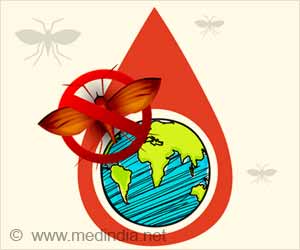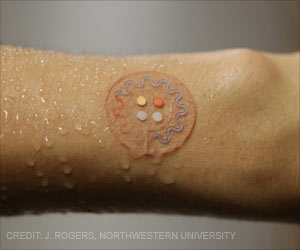End Malaria for Good: Investing in the Future - A call to action on World Malaria Day to raise awareness, promote sustained investments and engage communities to combat malaria.
- Malaria continues to be a significant public health challenge, with Sub-Saharan Africa accounting for about 94% of all malaria cases and deaths
- The use of insecticide-treated mosquito nets (ITNs) and indoor residual spraying (IRS) are effective in reducing the incidence of malaria in endemic areas, but their coverage is still limited
- Sustained investments in malaria control and elimination efforts, including the development of new tools and strengthening of health systems, are necessary to achieve the goal of ending malaria for good
Continuing Challenge of Malaria: Current Global Burden and Regional Disparities
Despite significant progress in the global fight against malaria, the disease remains a major public health challenge. According to the World Health Organization (WHO), there were estimated 229 million cases of malaria worldwide in 2019, resulting in 409,000 deaths. Sub-Saharan Africa continues to bear the brunt of the malaria burden, accounting for approximately 94% of all malaria cases and deaths. The theme of World Malaria Day 2023 is "End Malaria for Good: Invest in the Future." This theme highlights the need for sustained investments in malaria control and elimination efforts to achieve the ambitious goal of ending malaria for good.Role of Insecticide-Treated Mosquito Nets in the Fight Against Malaria
One of the key strategies for reducing the malaria burden is the use of insecticide-treated mosquito nets (ITNs). ITNs are bed nets that have been treated with an insecticide that kills mosquitoes when they come into contact with the net. The use of ITNs is highly effective in reducing the incidence of malaria in endemic areas. In 2019, it was estimated that 46% of the population at risk of malaria in sub-Saharan Africa slept under an ITN.Indoor Residual Spraying: A Highly Effective Malaria Control Strategy with Limited Coverage
Another important tool in the fight against malaria is indoor residual spraying (IRS), which involves spraying the walls and roofs of houses with insecticides to kill mosquitoes that rest on these surfaces. IRS is highly effective in reducing the number of mosquitoes and the incidence of malaria in endemic areas. In 2019, it was estimated that 10% of the population at risk of malaria in sub-Saharan Africa lived in households that had been sprayed with IRS.Innovations in Malaria Control: From Vaccines to New Tools for Insecticide and Drug Resistance
In addition to these interventions, there has been significant progress in the development of new tools for malaria control and elimination. For example, a malaria vaccine called RTS,S/AS01, developed by GlaxoSmithKline in partnership with the PATH Malaria Vaccine Initiative, was approved for use in children in several African countries in 2019. The vaccine is moderately effective in reducing the incidence of malaria in clinical trials.There are also efforts underway to develop new insecticides and antimalarial drugs that can be used to combat the growing problem of insecticide and drug resistance. Insecticide resistance is a major challenge to malaria control efforts, as mosquitoes are becoming resistant to the insecticides that are commonly used in ITNs and IRS. Similarly, the emergence of drug-resistant strains of the malaria parasite poses a significant threat to the effectiveness of antimalarial drugs.
Need for Sustained Investment in Malaria Control and Elimination Efforts: Funding Trends and Challenges
To achieve the goal of ending malaria for good, sustained investments in malaria control and elimination efforts are needed. This requires a commitment from governments, donors, and other stakeholders to provide the necessary funding and resources to support these efforts. In 2019, it was estimated that $3.1 billion was invested in malaria control and elimination efforts globally, which represents a decrease from the $3.2 billion invested in 2018.To address this funding gap, the WHO has called for increased investments in malaria control and elimination efforts. The WHO's Global Technical Strategy for Malaria 2016-2030 calls for a 90% reduction in malaria incidence and mortality by 2030, which will require an estimated $34 billion in funding from 2016-2030.
In addition to financial investments, there is also a need for political commitment and leadership to drive progress in the fight against malaria. This includes the development and implementation of national malaria control and elimination plans, as well as the strengthening of health systems to ensure malaria prevention and diagnosis and improve the quality of health data related to malaria. Accurate and timely data is essential for effective malaria control and elimination efforts, as it allows for the identification of high-risk areas and populations, the monitoring of progress, and the evaluation of interventions.
Importance of Community Engagement and Empowerment in Malaria Control and Elimination Efforts
Community engagement and empowerment are also critical components of successful malaria control and elimination efforts. This includes raising awareness about malaria and its prevention, as well as engaging communities in the design and implementation of malaria control interventions. Community-based approaches, such as community health worker programs and community-led surveillance systems, are effective in reducing the incidence of malaria in endemic areas.In conclusion, World Malaria Day 2023 provides an opportunity for individuals, organizations, and governments across the world to renew their commitment to ending malaria for good. While significant progress has been made in the global fight against malaria, much more needs to be done to achieve the ambitious goal of a world free of malaria. This will require sustained investments in malaria control and elimination efforts, as well as political commitment, community engagement, and the development and deployment of new tools and approaches for malaria prevention and treatment. By working together, we can end malaria for good and improve the health and well-being of millions of people around the world.
Source-Medindia













